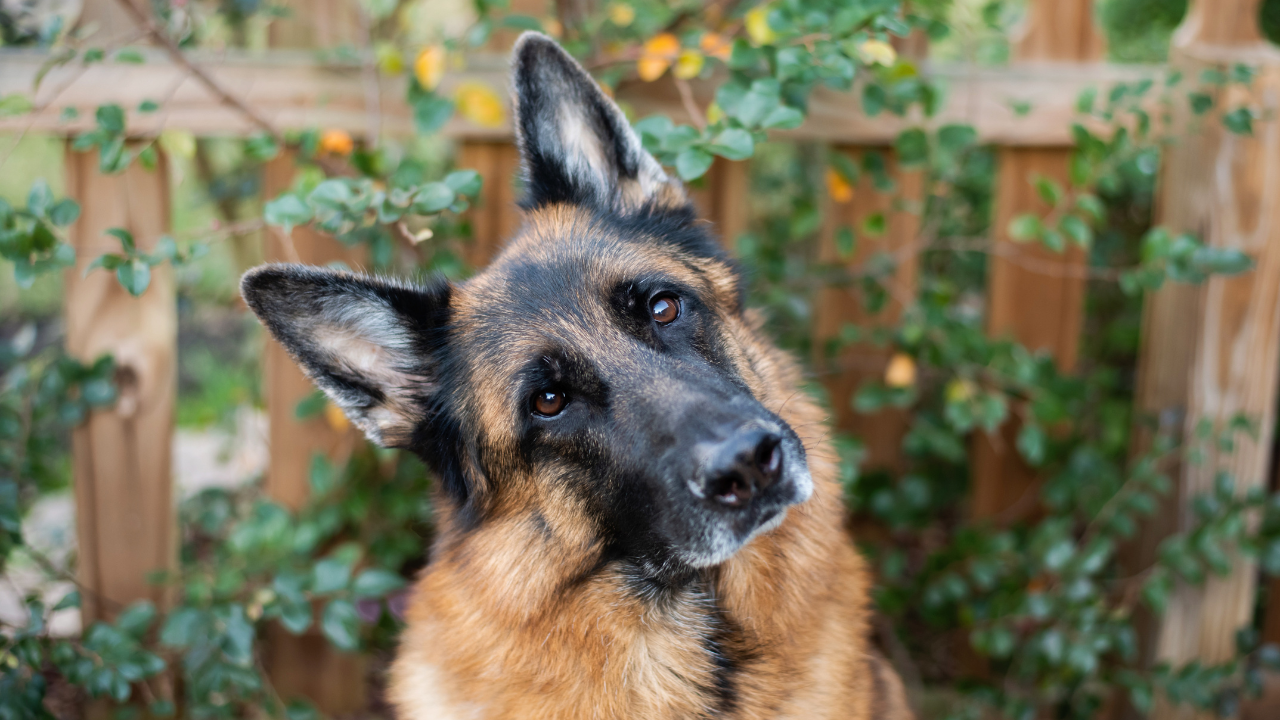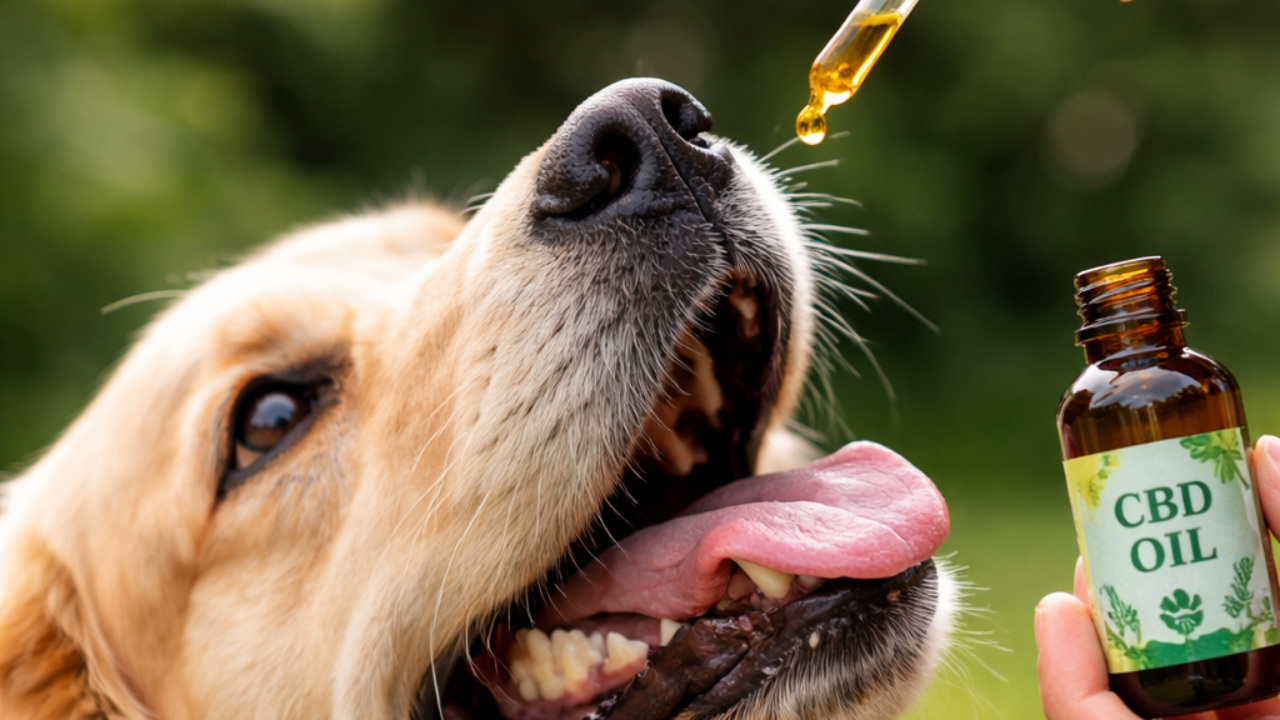Why Bladder Cancer is So Challenging
Aug 16, 2025
Getting a bladder cancer diagnosis for your dog can feel overwhelming. You might be searching everywhere for hope and answers. Recently, scientists have been studying whether CBD (a compound from hemp plants) might help dogs with bladder cancer. While the early research looks promising, it's still very new and has important limitations.
This article will help you understand what scientists have discovered so far, what it means for your dog, and why working closely with your veterinarian is still the most important thing you can do.
The bottom line: This research gives us hope for the future, but CBD is not yet a proven treatment for canine bladder cancer. Always talk to your vet before making any treatment decisions.
Understanding Bladder Cancer in Dogs
What Is Bladder Cancer?
Bladder cancer in dogs is most commonly a type called transitional cell carcinoma (TCC), also known as urothelial carcinoma.
Think of your dog's bladder as being lined with special cells called transitional cells. In bladder cancer, these cells start growing out of control and form tumors (Knapp & McMillan, 2015).
Why Bladder Cancer Is So Challenging
Location matters: Most bladder tumors in dogs grow in a tricky spot called the trigone – where the bladder connects to the tubes that carry urine. This location makes surgery nearly impossible without causing serious problems like incontinence (Purdue University, 2024).
It spreads: Unfortunately, more than half of dogs with bladder cancer already have cancer cells that have spread to other parts of their body by the time they're diagnosed (Knapp & McMillan, 2015).
It's hard to catch early: The first signs often look exactly like a urinary tract infection, which can delay proper diagnosis (BluePearl Veterinary Partners, 2023).
Who's Most At Risk?
Certain dog breeds are much more likely to develop bladder cancer:
- Scottish Terriers (18-20 times higher risk than other breeds)
- Shetland Sheepdogs
- West Highland White Terriers
- Beagles
- Wire Hair Fox Terriers
Other risk factors include being female, older age, and exposure to certain lawn chemicals or older flea control products (Purdue University, 2024).
What To Watch For
Early warning signs include:
- Blood in the urine (even tiny amounts)
- Straining to urinate
- Going to the bathroom more often than usual
- Accidents in the house from a house-trained dog
- Small amounts of urine each time
- Signs of pain while urinating
Important note: These symptoms can also be caused by infections or bladder stones, so they don't automatically mean cancer. However, if antibiotics don't solve the problem or symptoms keep coming back, further testing is needed.
The New Research: What Scientists Discovered
The Study That's Getting Attention
In 2021, Canadian researchers published a groundbreaking study about CBD and bladder cancer in dogs. This research was published in PLOS ONE, a respected scientific journal, which means other scientists reviewed and approved the work before publication (Inkol et al., 2021).
What The Researchers Did
The scientists took cancer cells from dogs with bladder cancer and grew them in laboratory dishes (this is called "in vitro" research). They then tested what happened when they:
- Treated the cancer cells with CBD alone
- Treated the cancer cells with traditional chemotherapy alone
- Treated the cancer cells with CBD and chemotherapy together
What They Found
Good news: The results were encouraging:
- CBD by itself reduced the number of cancer cells and caused them to die
- CBD worked even better when combined with certain chemotherapy drugs
- The combination was more effective than either treatment alone
Important limitation: This study was only done with cells in laboratory dishes, not in living dogs.
What This Means (And What It Doesn't Mean)
What this research suggests:
- CBD might have anti-cancer properties for bladder cancer
- Combining CBD with traditional treatments might work better than chemotherapy alone
- This research provides a foundation for future studies
What this research does NOT mean:
- CBD is not yet a proven treatment for dogs with bladder cancer
- We don't know if these laboratory results will work the same way in living dogs
- We don't know the right doses, timing, or potential side effects
- This is not a cure or even an established treatment
Why Research Progress Is Slow
The Legal Challenges
Cannabis research faces unique hurdles that other medical research doesn't have. Even though hemp (which contains CBD) became legal under the 2018 Farm Bill, researchers still face many obstacles (FDA, 2025):
Federal regulations: The FDA has not approved any CBD products for animals, and the regulatory pathway for studying these products is complex.
Research limitations: Universities and research institutions must navigate federal funding restrictions and complex approval processes.
Quality control issues: Many CBD products on the market don't contain the amounts listed on their labels, making research difficult (Today's Veterinary Practice, 2024).
What Researchers Need To Do Next
Before CBD can become a real treatment option, scientists need to:
- Test in living dogs: Move from laboratory dishes to actual clinical trials
- Figure out proper dosing: Determine safe and effective amounts
- Study long-term effects: Make sure CBD is safe over time
- Test interactions: See how CBD works with other medications
- Get regulatory approval: Work through the complex approval process
What This Means for Your Dog Right Now
Current Treatment Options
While we wait for CBD research to advance, proven treatments for bladder cancer in dogs include:
Medications:
- Piroxicam: An anti-inflammatory drug that can shrink tumors in many dogs
- Chemotherapy drugs: Such as mitoxantrone, which can slow cancer growth
- Combination therapy: Often the most effective approach
Supportive care:
- Urethral stents: Help keep urine flowing if the tumor blocks the urinary tract
- Radiation therapy: Can help control symptoms and pain
- Pain management: Keep your dog comfortable
Realistic expectations: With current treatments, many dogs can enjoy 6-12 months of good quality life, though unfortunately this cancer is ultimately fatal in most cases (BluePearl Veterinary Partners, 2023).
If You're Considering CBD
Talk to your veterinarian first. They can help you understand:
- Whether CBD might interfere with your dog's current treatments
- Quality concerns with available products
- Legal considerations in your area
- Alternative treatment options that might be more effective
Remember: There are no FDA-approved CBD products for animals, and product quality varies widely (FDA, 2025).
Hope for the Future
Why This Research Matters
This CBD study is important because it:
- Opens new possibilities: Shows that non-traditional approaches might help
- Guides future research: Gives scientists a roadmap for the next studies
- Helps human patients too: Because dog and human bladder cancers are very similar, discoveries in dogs often lead to human treatments
What's Coming Next
Researchers are working on:
- Clinical trials testing CBD in living dogs with cancer
- Better understanding of how CBD works against cancer cells
- Combination therapies that might be more effective
- Improved regulatory pathways for cannabis research
Supporting Your Dog Through Cancer
Focus on Quality of Life
While treatments can extend life, the most important goal is keeping your dog comfortable and happy. Work with your veterinarian to:
- Manage pain effectively
- Monitor for urinary blockages
- Adjust treatment if side effects become too severe
- Make decisions based on your dog's individual situation
You're Not Alone
Remember:
- Many dogs with bladder cancer can still enjoy good quality time with their families
- Treatment options are constantly improving
- Your veterinarian is your best resource for current treatment options
- Support groups for pet parents dealing with cancer can be incredibly helpful
Questions to Ask Your Vet
- What treatment options are best for my dog's specific situation?
- How will we monitor whether treatment is working?
- What signs should I watch for that might indicate we need to change our approach?
- Are there clinical trials my dog might be eligible for?
- How can I best support my dog's comfort and quality of life?
The Takeaway
The early research on CBD for canine bladder cancer is genuinely exciting and gives us reason for hope. However, we're still in the very early stages of understanding how this might work as a real treatment for dogs.
Right now, the most important thing you can do for a dog with bladder cancer is work closely with your veterinarian to access proven treatments that can extend quality life. Stay informed about new research, but don't wait for experimental treatments when effective options are available today.
Science takes time, but every study like this one brings us closer to better treatments for our beloved companions. Your dog's battle with cancer is helping pave the way for future dogs and their families.
Remember: You're doing everything you can for your dog by seeking information and working with your veterinary team. That love and dedication makes all the difference in your dog's journey.
References
American Veterinary Medical Association. (2024). Cannabis use and pets. https://www.avma.org/resources-tools/animal-health-and-welfare/animal-health/cannabis-use-and-pets
BluePearl Veterinary Partners. (2023). Transitional cell carcinoma in dogs. https://bluepearlvet.com/medical-articles-for-pet-owners/transitional-cell-carcinoma-in-dogs/
Cornell University College of Veterinary Medicine. (2024). The ABC's of cannabidiol (CBD) from hemp. https://www.vet.cornell.edu/departments-centers-and-institutes/riney-canine-health-center/canine-health-information/abcs-cannabidiol-cbd-hemp
Inkol, J. M., Hocker, S. E., Mutsaers, A. J., Wood, G. A., Karrow, N. A., Niel, L., ... & Caswell, J. L. (2021). Combination therapy with cannabidiol and chemotherapeutics in canine urothelial carcinoma cells. PLOS ONE, 16(8), e0255591. https://journals.plos.org/plosone/article?id=10.1371/journal.pone.0255591
Knapp, D. W., & McMillan, S. K. (2015). Management of transitional cell carcinoma of the urinary bladder in dogs: A review. The Veterinary Journal, 205(2), 217-225. https://www.sciencedirect.com/science/article/abs/pii/S1090023315000350
North Carolina State University Veterinary Hospital. (2024). Medical oncology: Urothelial carcinoma. https://hospital.cvm.ncsu.edu/services/small-animals/cancer-oncology/oncology/urothelial-carcinoma/
Purdue University College of Veterinary Medicine. (2024). Canine urinary bladder cancer research. https://vet.purdue.edu/wcorc/cancer-research/canine-urinary-bladder-cancer-research.php
Today's Veterinary Practice. (2024). An update on the legal considerations of the use of cannabis in veterinary medicine. https://todaysveterinarypractice.com/integrative-alternative-medicine/an-update-on-the-legal-considerations-of-the-use-of-cannabis-in-veterinary-medicine/
U.S. Food and Drug Administration. (2025). Use of cannabis-derived products, including cannabidiol, in veterinary practice; request for information. https://www.federalregister.gov/documents/2025/01/16/2025-00945/use-of-cannabis-derived-products-including-cannabidiol-in-veterinary-practice-request-for
VCA Animal Hospitals. (2024). Transitional cell carcinoma in dogs and cats. https://veterinarypartner.vin.com/doc/?id=4951982&pid=19239
Become a Dog Cancer Coach.
Transform your passion for dogs into a meaningful, heart-led career with our Holistic Dog Cancer Coach Certification—an in-depth, flexible online program designed for compassionate caregivers ready to make a difference.
Stay connected with news and updates!
Join our mailing list to receive the latest news and updates from our team.
Don't worry, your information will not be shared.
We hate SPAM. We will never sell your information, for any reason.





